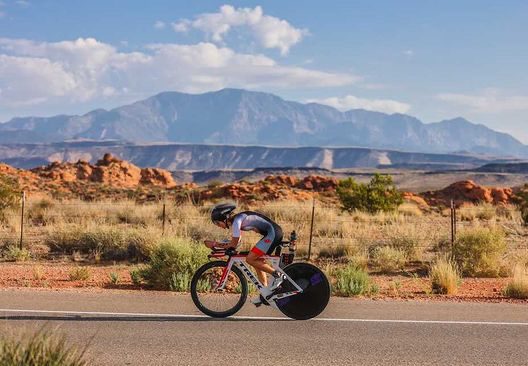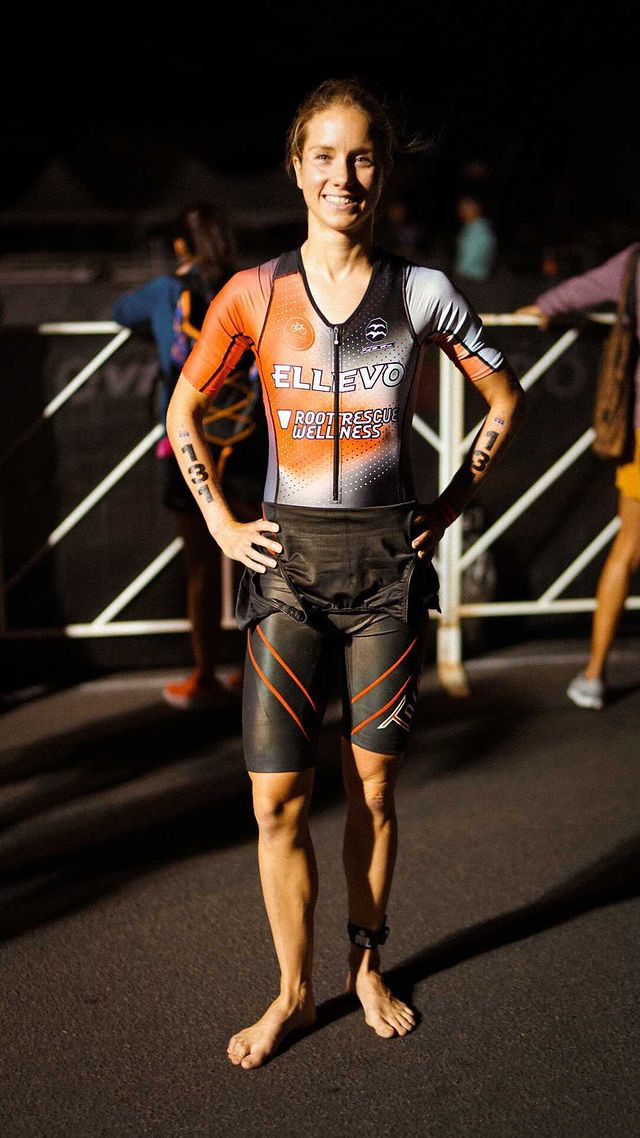Tamara Jewett
My name is Tamara Jewett. I started my athletic career as a middle-distance track runner (1500m to 5km) expecting to compete at an elite level until somewhere around age 26 and then focus on a career in law. Almost a decade of severe athletic injuries, culminating in 18 months unable to run at all, derailed my goals for track. But, at age 31, my athletic career is on a roll again, and I am succeeding at the highest levels of pro long-course triathlon (focused on Ironman 70.3s).
In approaching this new, and a little bit unexpected, phase of my athletic life, a piece of advice from my coach, Suzanne Zelazo, resonated with the learning and experiences that brought me here: “Hold your goals lightly.” The sentiment sounds a little bit different from the way that athletes are often encouraged to state goals: boldly, confidently, uncompromisingly, holding on to the goals in every moment to make sure that they manifest. However, to me, Suzanne’s phrase means keeping an eye on an ambitious end goal while prioritizing process. In my experience, it has been the difference between a rigid and fragile focus on specific athletic results and a resilience that allows for longer-term engagement with sport and supports both excellence and well-being.
In track, I did not hold my goals lightly, and they became a heavy burden that interfered with my success. To pick one example, I vividly remember placing 5th at the Canadian University Cross-Country Championship in my first year at the University of Toronto. It was a good debut performance on a very difficult course, and I won female rookie of the year. I deserved to let myself celebrate. If I had, I think that it would have created positive momentum towards improving performances. Instead, I was deeply angry with myself, feeling that I was capable of more and needed to demand better of myself. My coach, knowing that I was capable of being on the podium, encouraged those feelings. That rigidity in our approach to results created a lot of negative energy that I then had to fight through to run well. At the time, I thought that I was holding myself accountable to my goals and potential. I think now that it was unfair, unnecessary and counter-productive to longer-term success.
My subsequent injury history could be its own essay (or book!), but the important take-away for a discussion about goal setting is that it forced me to accept very deeply that my continuing engagement with sport might never produce objectively excellent results. I never fully gave up, but to avoid giving up, I had to focus on process and what I personally found valuable in the process of my work as an athlete. This forced acceptance gave me the strength that I needed to keep trying, and that is resilience. Results-oriented goals remain important motivators for me that help me to create and evaluate plans and to stay focused. However, race results are not the main thing that I look to to validate my engagement with sport.
Recently, I ran a world-best time for the run split of an Ironman 70.3 triathlon: a 73.09 half-marathon off of a personal best power output in my bike split (and a significant improvement on my own run split on the same course two years ago). I placed second in the triathlon, only 37 seconds out of first after just over four hours of racing. I did that by holding my goals lightly. Suzanne and I have been working hard to try to make me one of the best runners in my sport. I work very hard at that every day, and it informs our planning and, to be honest, the whole structure of my life. However, to run that time, I was not thinking about specific kilometer splits or a specific time that I had to run on that day. The only instructions from my run-consultant coach Ethan Davenport were: “Try to be more aggressive on the run today, and accelerate a bit coming out of the corners”. I worked qualitatively to maximize what I felt I could do in each moment of that run, and it was a huge success. Similarly, my aim was to be on the podium in that race, ideally first or second, and that was in my mind during the race. But, I held it lightly. I did not let concern about the result overtake my focus on each moment within the race or my enjoyment of racing. If I had not been on the podium or not run a good time, that would have been disappointing, but not devastating. Suzanne and I both would have been attentive to making sure it was not a weight interfering with continuing the process of working towards success.
I have very ambitious goals for triathlon, and I do state them boldly to people I trust. But I try hard to keep holding them lightly. To me, that is not a cop out. So far from it. It has allowed me to overcome what to many athletes would have been career-ending obstacles and to excel at international competition years after I had thought I would be done with elite sport.
- Tamara Jewett



